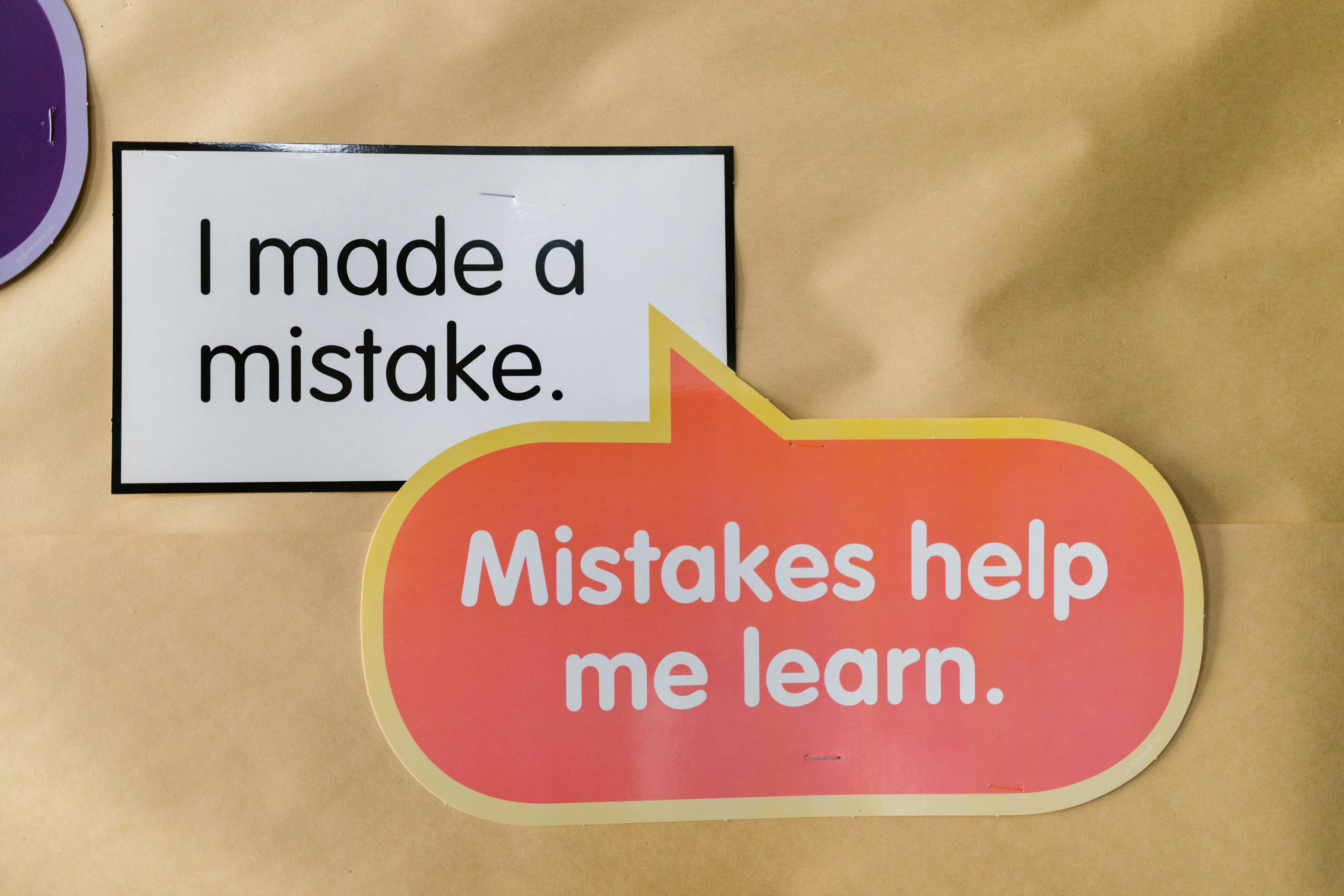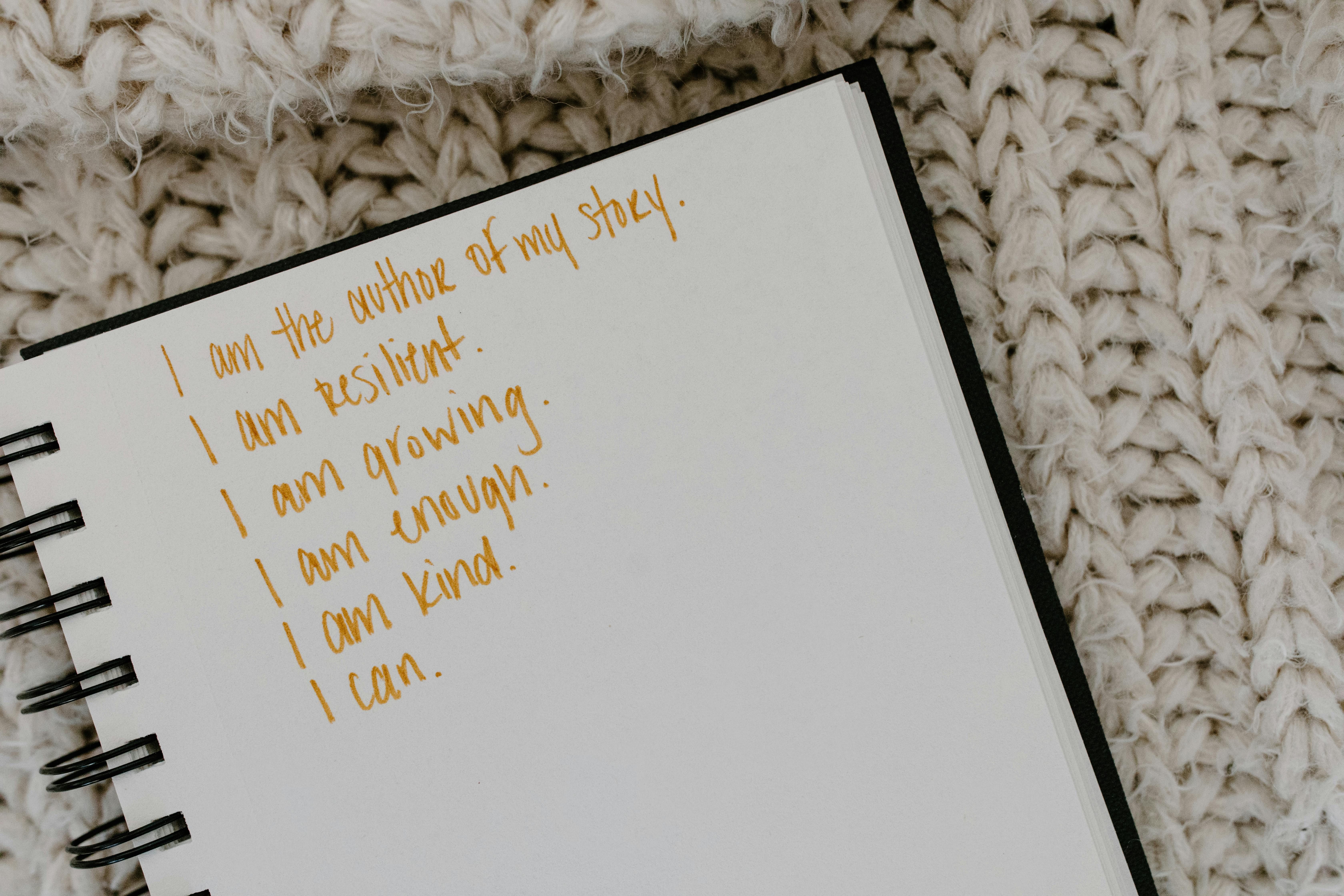Do you also think affirmations are disillusioning, deceitful, and pretentious?
Is that your perception?
Many people assume that affirmations are nothing more than sugar-coated lies or empty phrases people repeat to feel better while their problems remain untouched. To some, it sounds like denial, like standing in the middle of a storm and saying, “It’s sunny,” hoping the rain will stop.
That is untrue. We hope that by the time you’re done reading this, you will come to see affirmations differently.
What Are Affirmations?
Affirmations are positive statements you intentionally repeat to challenge and control negative or unhelpful thoughts. They’re not magical words or instant solutions. They don’t make your bank account fill up or your problems disappear overnight. But what they can rewire how you think. And that changes how you act, how you feel, and how you show up for your life.
You know yourself best, so your affirmations should be tailored to your current situation. Whether you're struggling with a job loss, battling low self-esteem, healing from a breakup, or simply trying to stay afloat mentally — your affirmations can (and should) speak to that directly.
Affirmations and Mental Health
In the context of mental health, affirmations can be powerful tools. While they might not change anything physically, their effects on the mind are significant.
Research suggests that affirmations can help reduce stress and promote a more optimistic mindset.
Daily affirmations can really help with anxiety and depression. When we feel anxious, our minds often get stuck in worry and fear. Affirmations break that cycle by helping us focus on positive thoughts that bring calm.
For people dealing with depression, affirmations can help shift the feeling of hopelessness to a reminder of our worth and strength. Repeating these positive statements each day gradually helps us feel better about ourselves, and over time, it can reduce feelings of sadness.
When used consistently, affirmations can give you a glimpse of how far you can go even when your current situation is far from perfect. They don’t replace therapy or action, but they do support them.
They work hand-in-hand with techniques used in Cognitive Behavioral Therapy (CBT), where people learn to challenge negative thought patterns and replace them with more empowering ones.

Common Misunderstandings
Let’s be clear that using affirmations doesn’t mean pretending everything is fine. It’s not about ignoring reality or avoiding your problems. That would be delusional, and affirmations are not meant to encourage such.
Instead, they help you reframe your reality. They offer an intentional shift from self-doubt to self-belief. When paired with action, affirmations become a support system for your mental and emotional well-being.
How to Use Affirmations Effectively
You don’t need a fancy journal or morning sun to start using affirmations. What you need is intention, consistency, and your own voice.
- Write in the Present Tense: “I am worthy of love,” not “I will be worthy someday.”
- Keep Them Visible: Sticky notes on your mirror, wardrobe, bathroom door, anywhere you’ll see them.
- Use Your Phone: Set reminders or wallpaper with your affirmations.
- Speak Them Out Loud: Don’t just think them, declare them. Saying it with your own voice reinforces the message in your brain.
- Be Consistent: Just like exercise, results come with repetition. It might feel silly at first, but over time, your brain starts to adopt the message.
- Start Small: Choose 2–3 affirmations and say them daily for at least 30 seconds.

10 Mental Health Affirmations to Try
Many people don’t realize they practice affirmations daily – just negatively. You might not have written them down or said them aloud, but if you’re constantly thinking, “I can’t do this,” or “Nothing good ever happens to me,” those are affirmations, too, just unhelpful ones.
Affirmations aren’t foreign. They’re familiar. You’ve just got to turn them in your favor.
If you're not sure where to start, here are a few affirmations that support mental health and emotional well-being. You can tweak them to suit your current needs:
- My body deserves love, rest, and care.
- My past doesn’t define me.
- I am doing my best, and that is enough.
- I am allowed to feel and process my emotions.
- My mental health matters.
- I am not my mistakes. I am learning and growing.
- I choose progress, not perfection.
- I deserve peace.
- I matter, even when I don’t feel like I do.
- I trust myself to make decisions that support my healing.
Mental Health Awareness Month
We’re still in Mental Health Awareness Month, and it’s the perfect time to try something that uplifts your mindset.
Affirmations are not magical fixes, but they are powerful tools. They help you take charge of your thoughts, challenge harmful patterns, and support your healing process.
Start where you are. Speak what you need.
And remember: your voice is one of your greatest tools for transformation.
